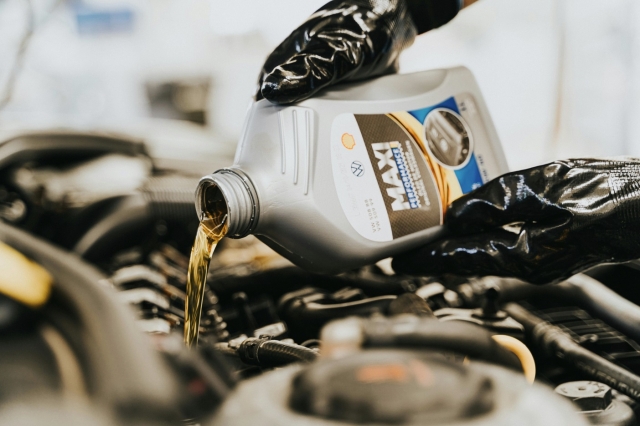Motor oil plays an essential role in helping keep your vehicle running smoothly, yet there are many myths surrounding oil changes. While traditional advice may have worked for older vehicles, modern engines and advanced motor oil technology have changed the game. Let's explore some common misconceptions and uncover the facts, emphasizing the importance of following manufacturer guidelines for your vehicle's oil needs.
Myth 1: You Need to Change Your Oil Every 3,000 Miles
The old 3,000-mile rule was once a standard recommendation but is now outdated. Advancements in modern vehicles and oil technology often allow for intervals of 5,000 to 10,000 miles between oil changes. Some synthetic oils even extend beyond this range. Your vehicle's owner's manual is the most reliable source for determining the right interval for your car.
Driving habits also affect oil change frequency. Stop-and-go traffic, towing heavy loads, or extreme temperatures can affect your oil's lifespan. Schedule a convenient oil change service appointment when you're nearing your recommended mileage.
Myth 2: Synthetic Oil Causes Engine Leaks
A common myth is that synthetic oil causes engine leaks. In reality, synthetic oil does not create leaks— but it may reveal existing ones. Synthetic oil's smaller molecules make it more effective at cleaning your engine, which can expose weak seals or pre-existing cracks. However, this doesn't mean the oil is at fault.
Manufacturers rigorously test synthetic oils and confirm they're safe for modern engines. If you're unsure about your vehicle's oil needs, consult your owner's manual or a trusted technician.

Myth 3: You Can't Switch Between Conventional and Synthetic Oil
Switching between conventional and synthetic oil is safe if both meet your vehicle's specifications. Some drivers believe once you choose synthetic, you're committed for life, but this isn't true. You can seamlessly transition between the two oil types based on driving conditions or your vehicle's requirements.
For example, if you've been using conventional oil but want synthetic's extended life and performance benefits, making the switch is a great option. Similarly, returning to conventional oil is fine if it meets the required standards.
If your vehicle runs on diesel rather than gasoline, check your manual for oil change requirements or visit a diesel oil change service professional for expert advice tailored to your vehicle.
Myth 4: Dark Oil Means It's Time for a Change
It's easy to assume that dark or dirty-looking oil means it's time for a change, but this isn't always the case. Motor oil darkens as it does its job—cleaning your engine and absorbing contaminants. Its color alone doesn't determine its effectiveness or indicate replacement is needed.
Instead, rely on mileage, driving habits, and manufacturer recommendations to decide when to change your oil. Regular oil checks help you monitor the oil's condition but follow the recommended intervals outlined in your owner's manual.
Myth 5: Synthetic Oil Is Always Better for Every Vehicle
Synthetic oil is often praised for its performance and longevity, but it's not the best choice for every vehicle. Older engines, for example, may benefit more from conventional oil, as some seals in older models aren't designed to handle synthetic's advanced formulation.
However, synthetic oil is ideal for high-performance or modern vehicles. It offers better protection under extreme conditions and helps extend engine life. Consider your driving habits, vehicle age, and manufacturer guidelines when deciding between synthetic and conventional oil.
Myth 6: High-Performance Oils Boost Everyday Car Performance
High-performance oils are designed for extreme conditions, such as racing or heavy towing, not everyday driving. Using these oils in a standard vehicle doesn't often provide additional benefits and may even reduce efficiency if not required by the engine design.
If you're considering high-performance oil, consult your vehicle's manual or a trusted technician first. Choosing the right oil based on your driving habits and vehicle needs is key to maintaining efficiency and longevity. Use oil change coupons to make regular maintenance more affordable.
Myth 7: Once You Start Using Synthetic Oil, You Can't Go Back
This myth is a common source of confusion for drivers. In reality, switching back to conventional oil after using synthetic is entirely safe, provided both meet your car's specifications. Modern vehicles are built to accommodate different types of oils, allowing flexibility as long as the oil meets your engine's requirements.
Switching between oils may be appropriate depending on factors such as climate, driving conditions, and cost considerations. Ultimately, the type of oil you use should align with your car's specifications and your driving habits for optimal performance.

Final Thoughts: Trusting Manufacturer Recommendations
Motor oil myths can lead to unnecessary maintenance or even improper care for your vehicle. The best approach is to rely on your vehicle manufacturer's recommendations outlined in your owner's manual. Whether it's determining the right oil type or the proper interval between oil changes, following these guidelines helps promote your engine's longevity and performance.
Sticking to the manufacturer's recommendations also supports warranty compliance, helping prevent potential issues if your engine needs repairs. Many modern vehicles have advanced sensors that monitor oil life, offering additional guidance on when to schedule an oil change.
For professional guidance, consider scheduling a convenient oil change service or visiting a trusted technician for advice. Professionals can assess your vehicle's needs more accurately, addressing factors like driving conditions and mileage, and making sure used oil is disposed of properly. Regular maintenance and informed decisions help keep your engine running smoothly and help you get the best value from your vehicle's oil. A well-maintained engine performs better and can save you money in the long run by helping avoid costly repairs.






